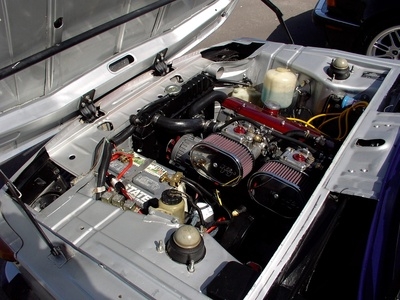
The lead-acid batteries found in cars and other motor vehicles provide a high current when called upon and are recharged by the car's alternator during operation. When not in use, car batteries slowly lose their charge. Most of the loss is from self-discharge inherent in the battery's chemistry, which may be as much as 2 percent of the battery's capacity daily. A trickle charger keeps the charge topped up by delivering a small, constant current during storage or periods of disuse.
Open the battery's vent caps to check the electrolyte level in each cell. Add distilled water to the bring the level up to the bottom of the fill hole if necessary. If your battery doesn't have removable vent caps, it is maintenance-free and you should skip this step.
Use a trickle charger that matches your battery's voltage output. Most cars use 12-volt batteries, but check the battery label or your vehicle's owner's manual to be sure.
Attach the charger's clamps directly to the battery terminals if the charger has alligator-style clips. Clamp the charger's red (positive) cable to the battery's positive or "+" terminal and the black (negative) cable to the battery's negative or "-" terminal.
Plug the AC adapter into a 110-volt receptacle and turn on the power switch. If your charger uses a solar panel to provide current, put it where it will be exposed to light for most of the day.
Leave the trickle charger connected while the battery is not in use to keep the battery's charge topped up.